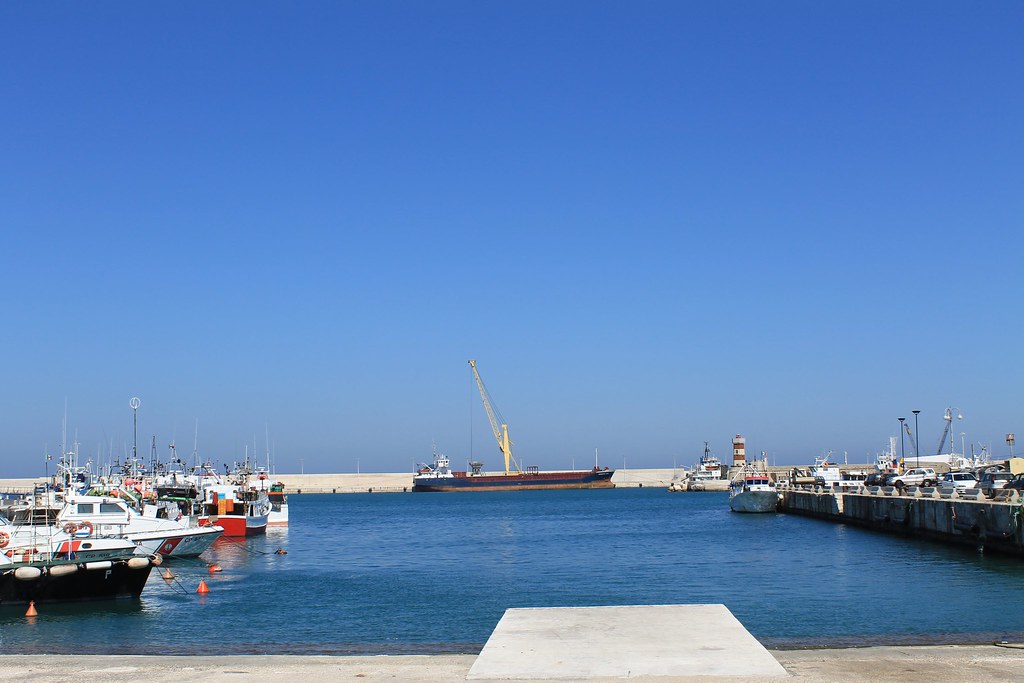
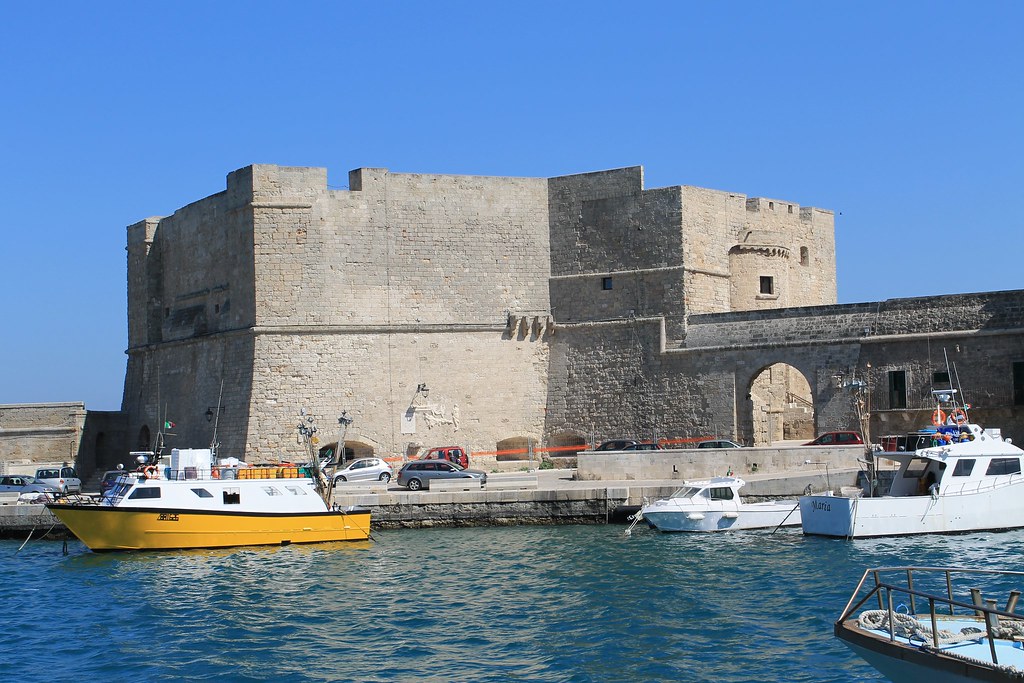
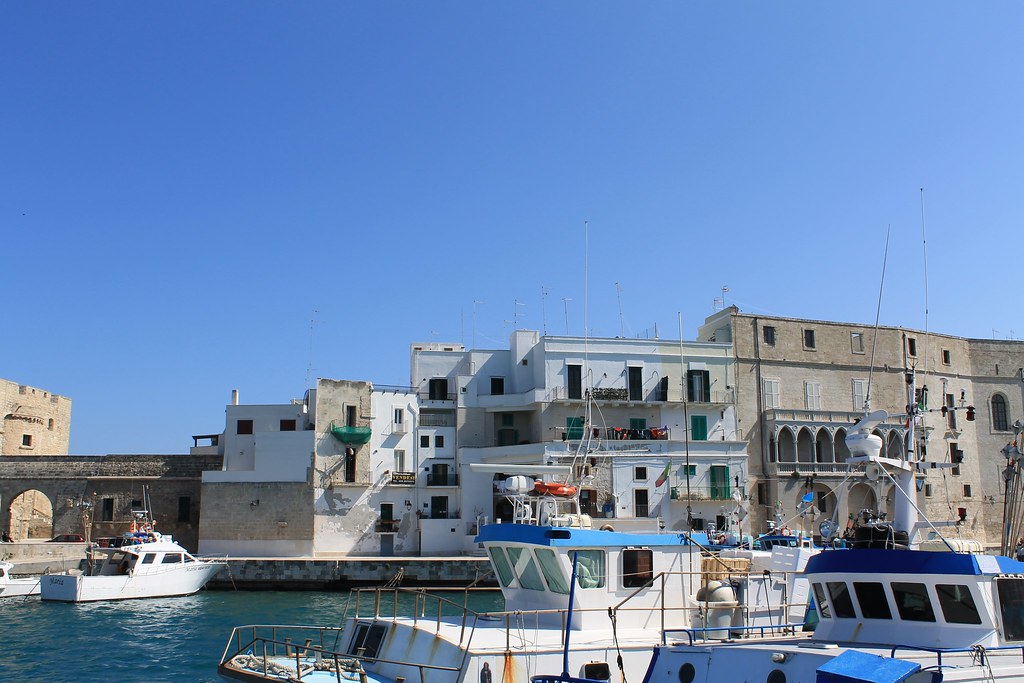
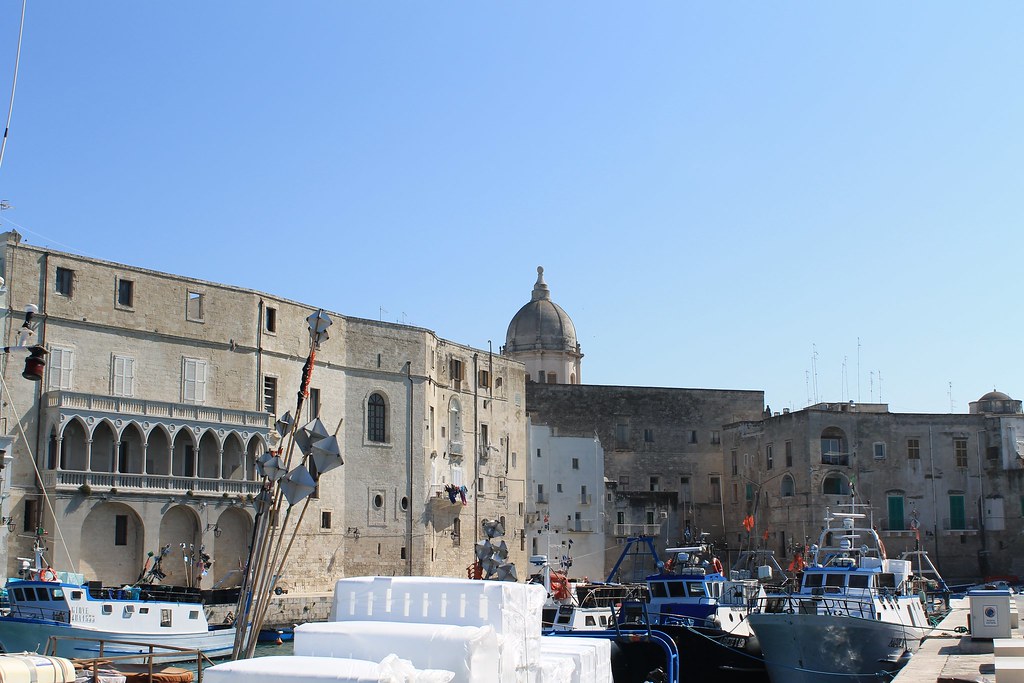
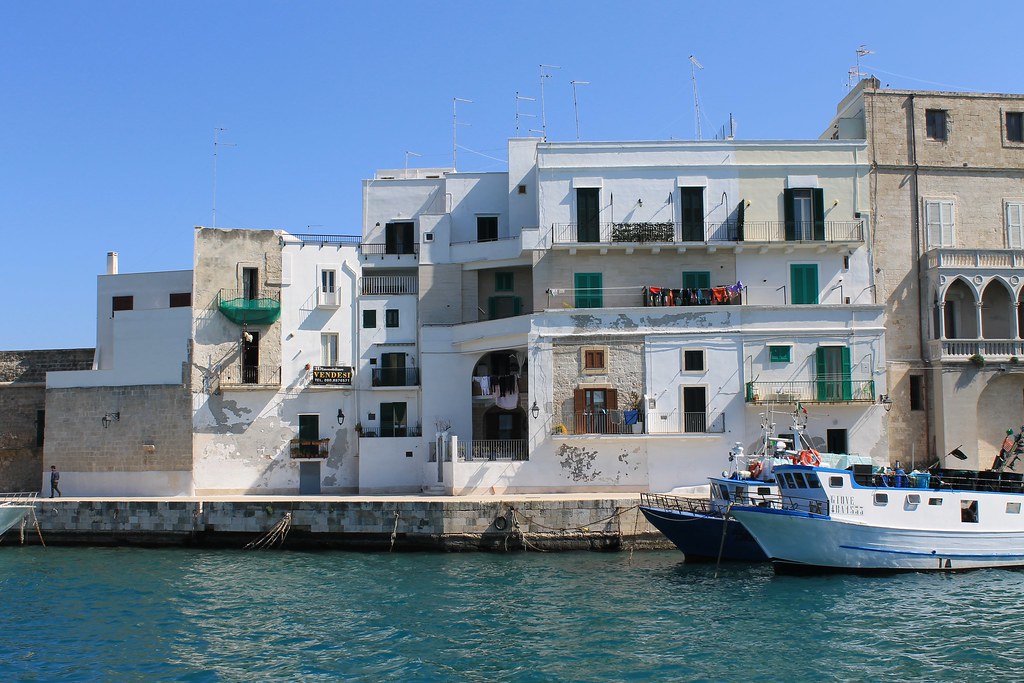
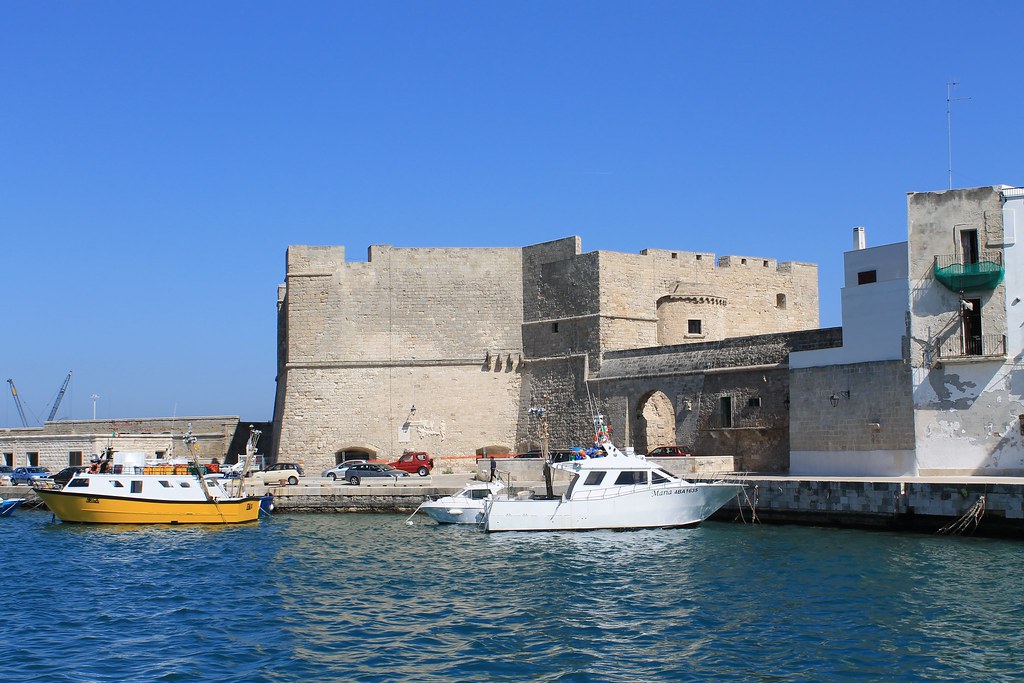
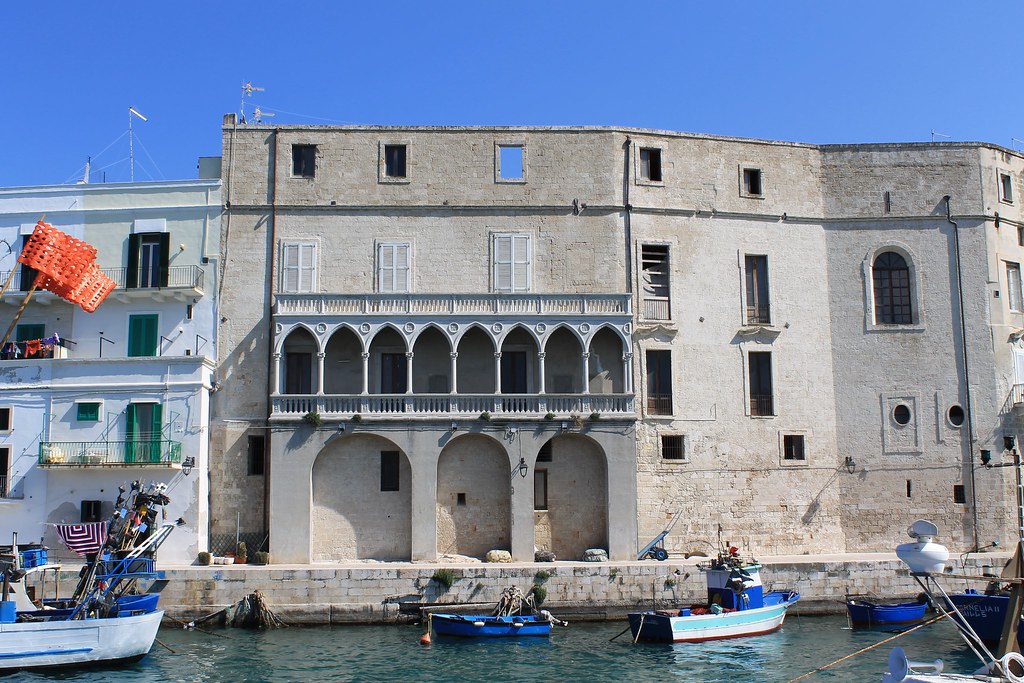

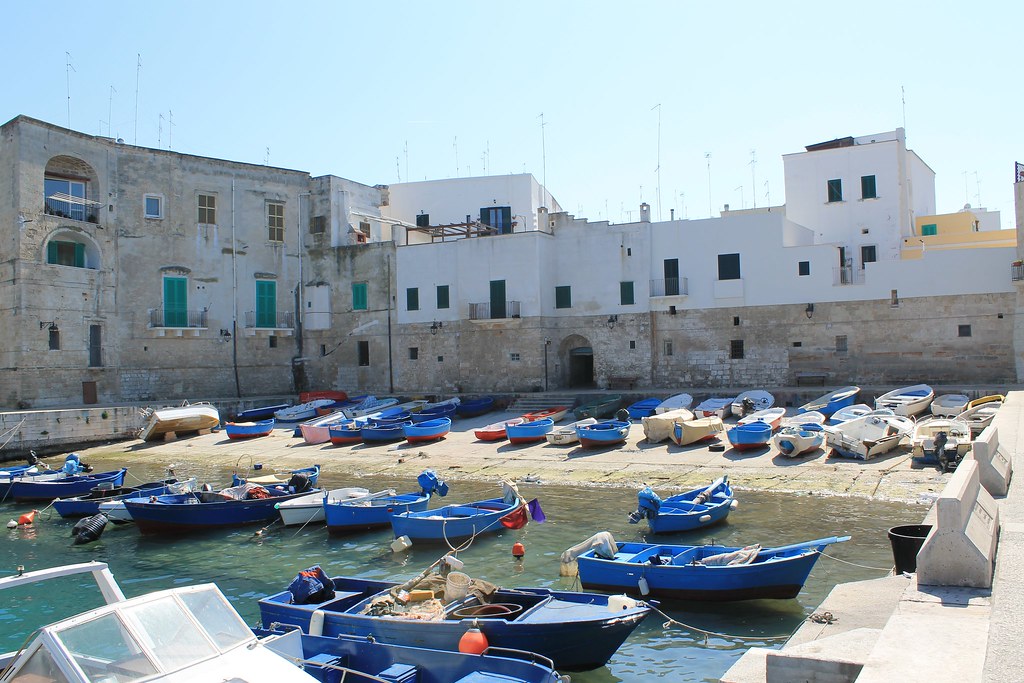
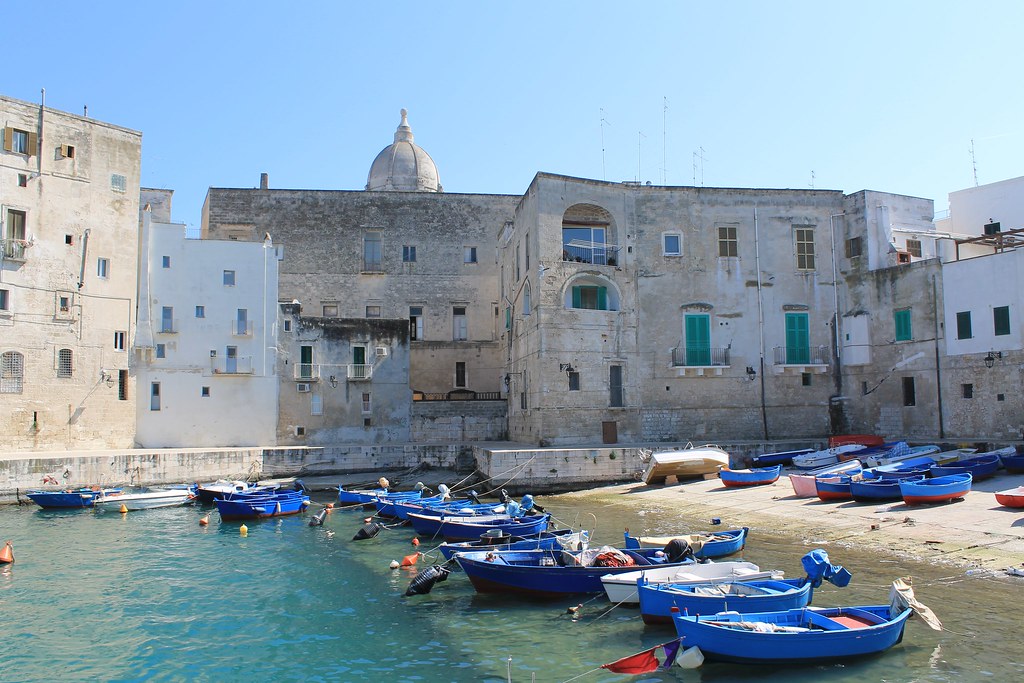
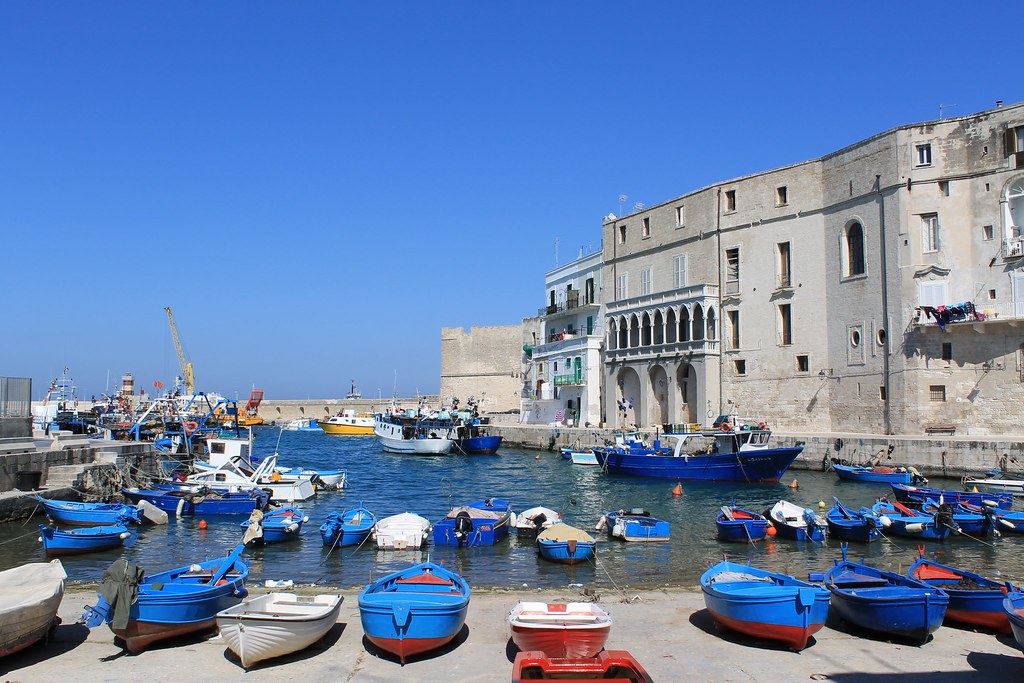
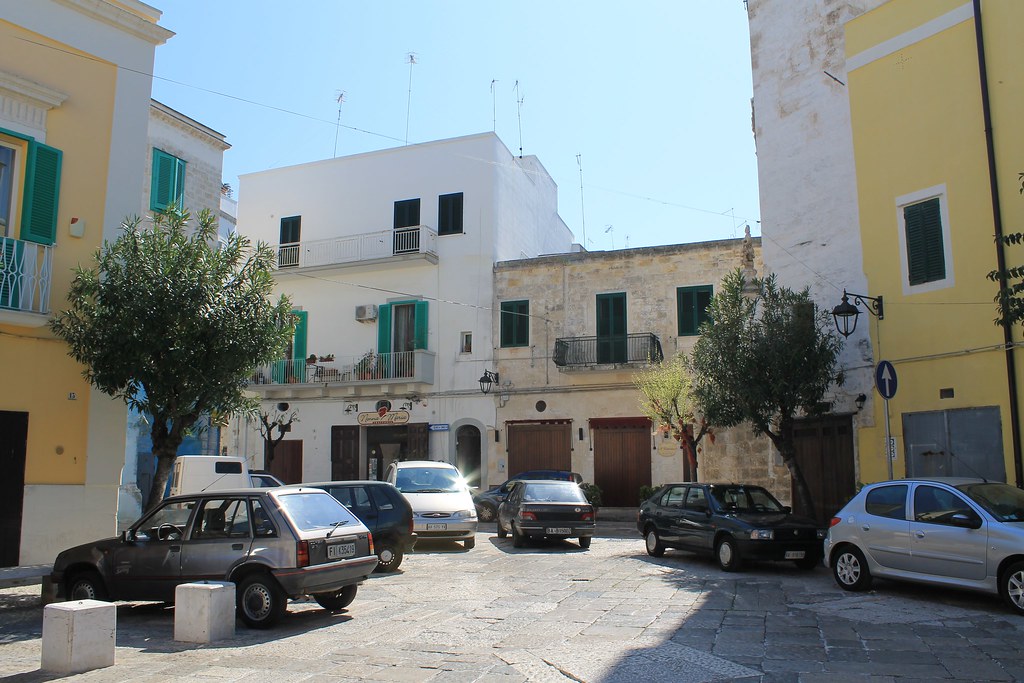
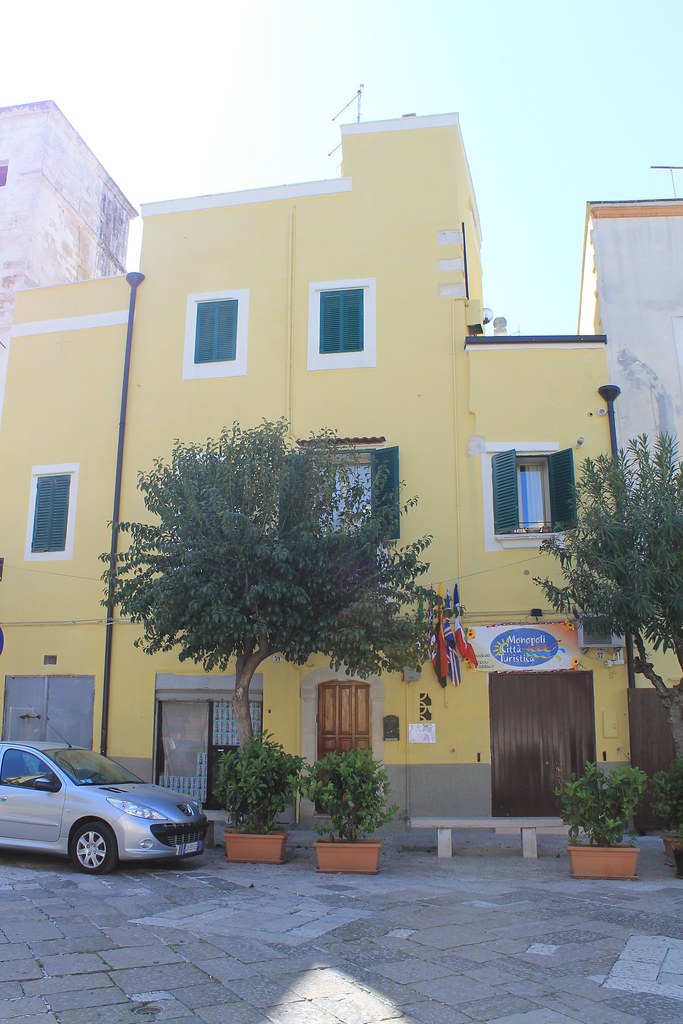
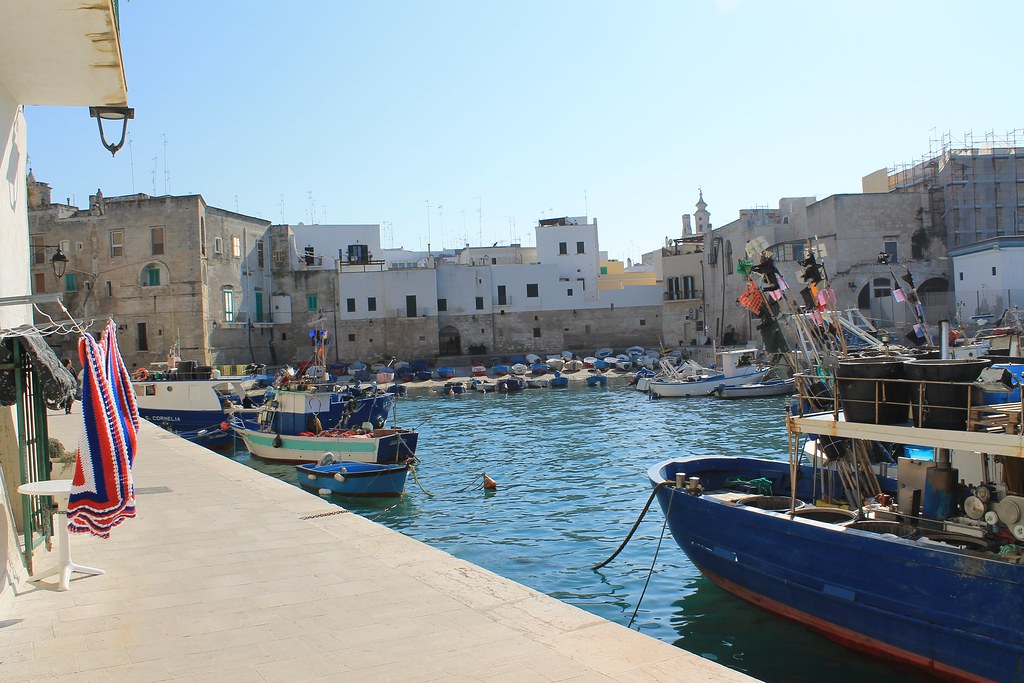
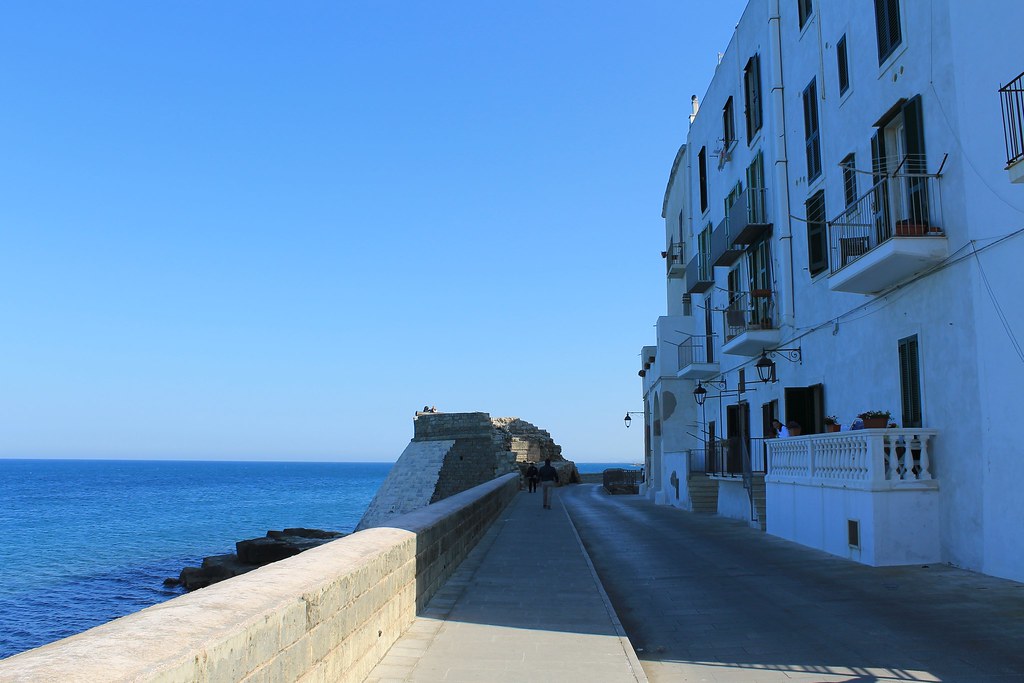
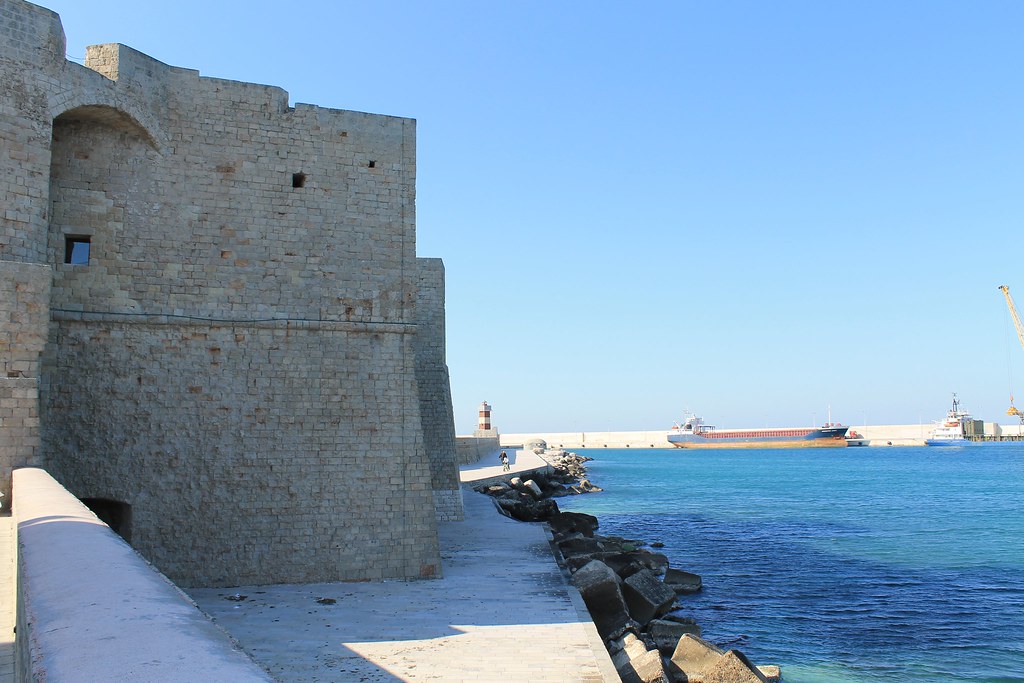
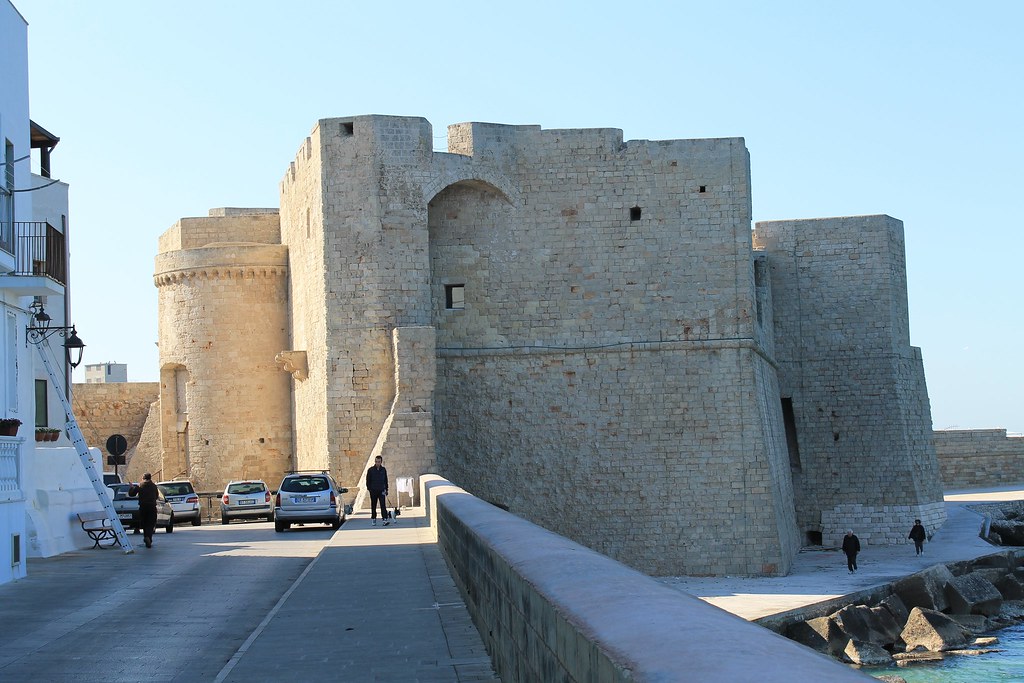
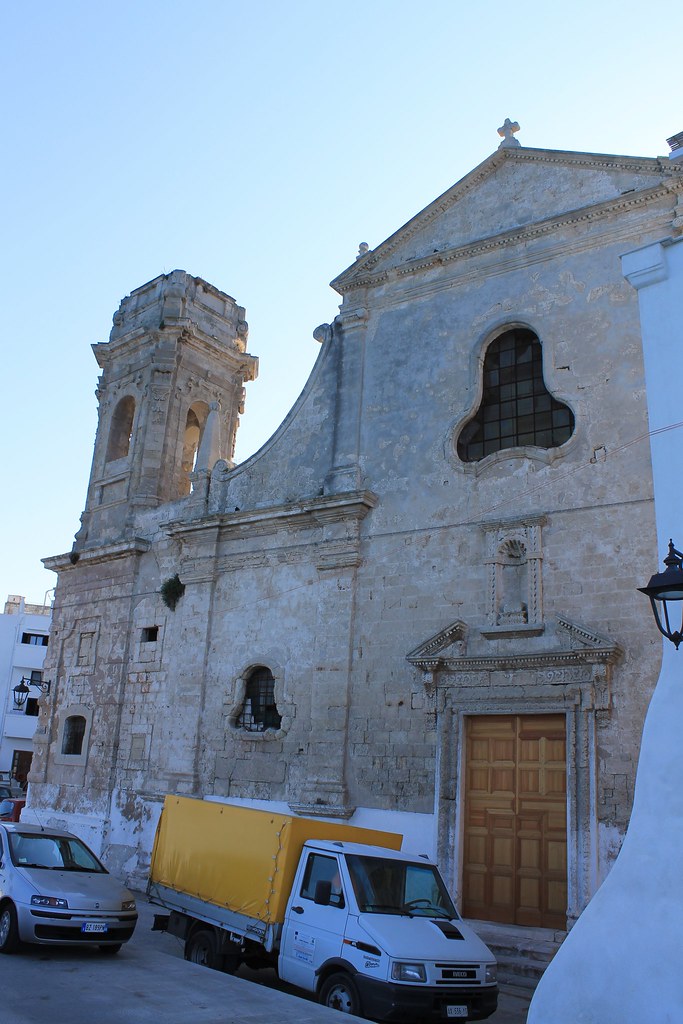
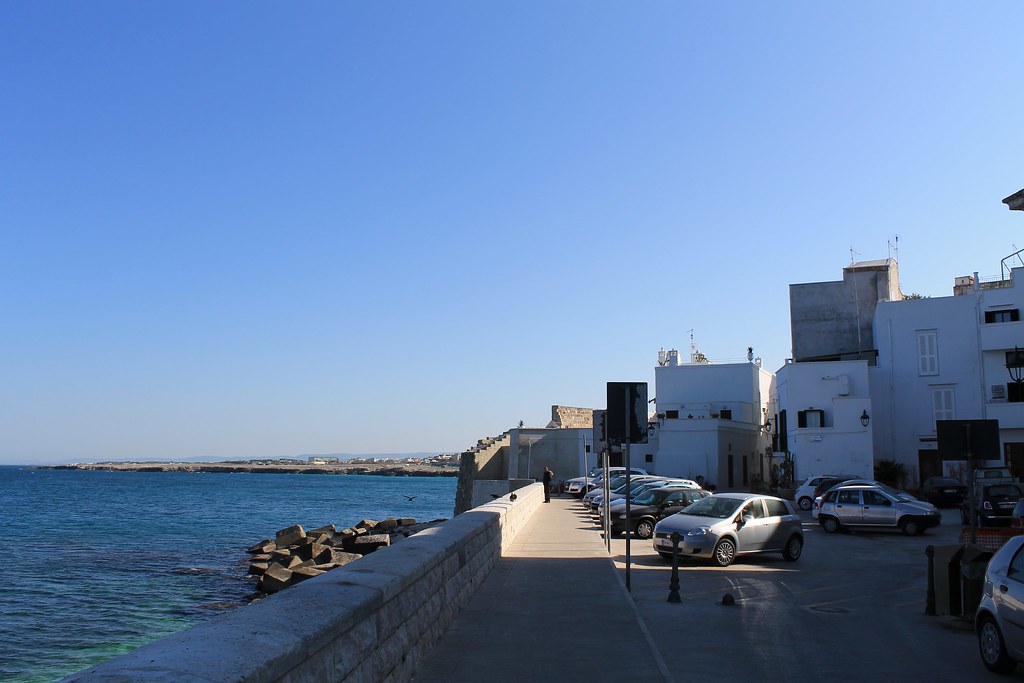
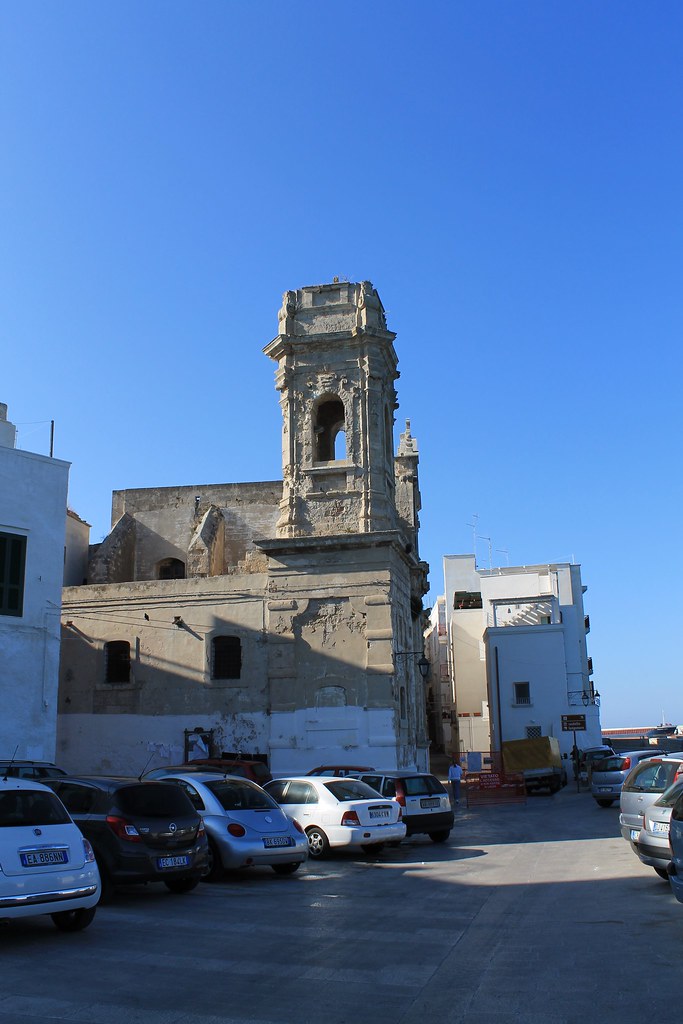
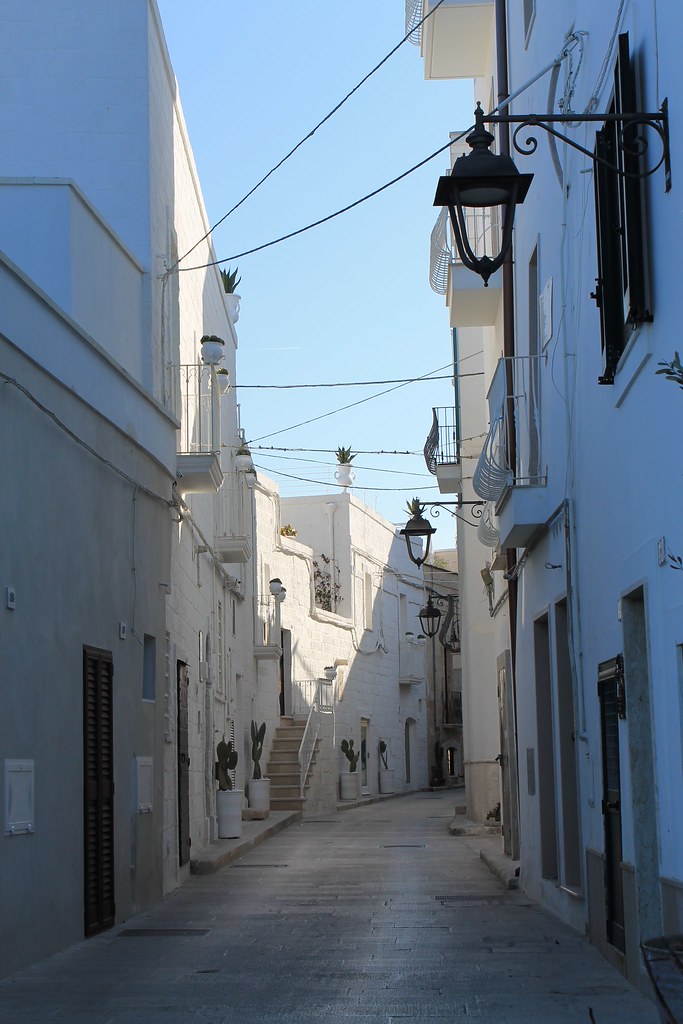
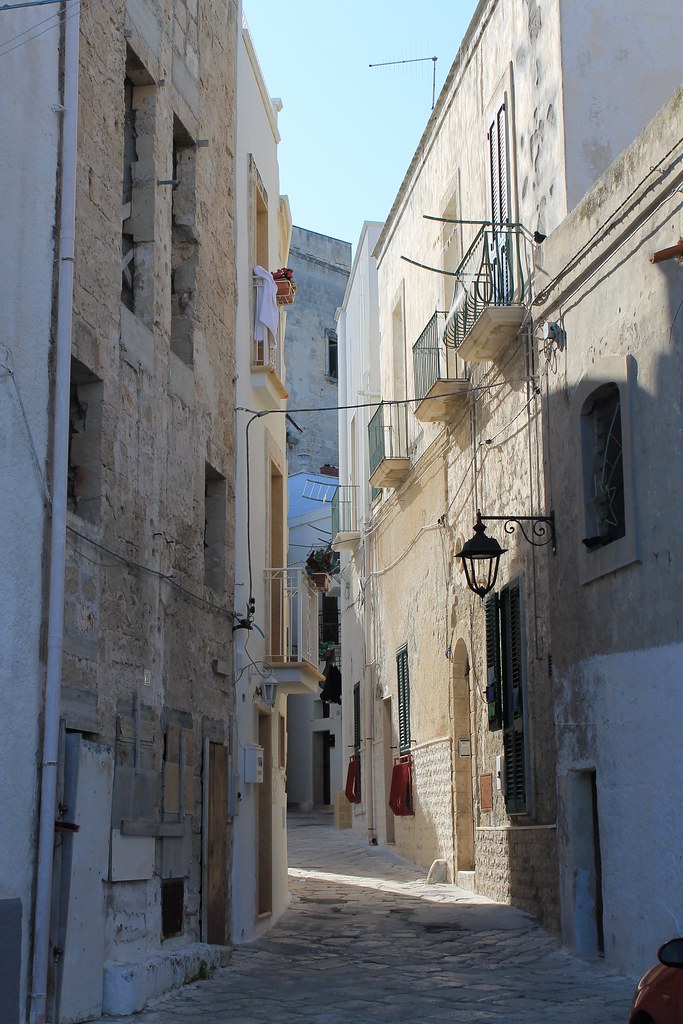
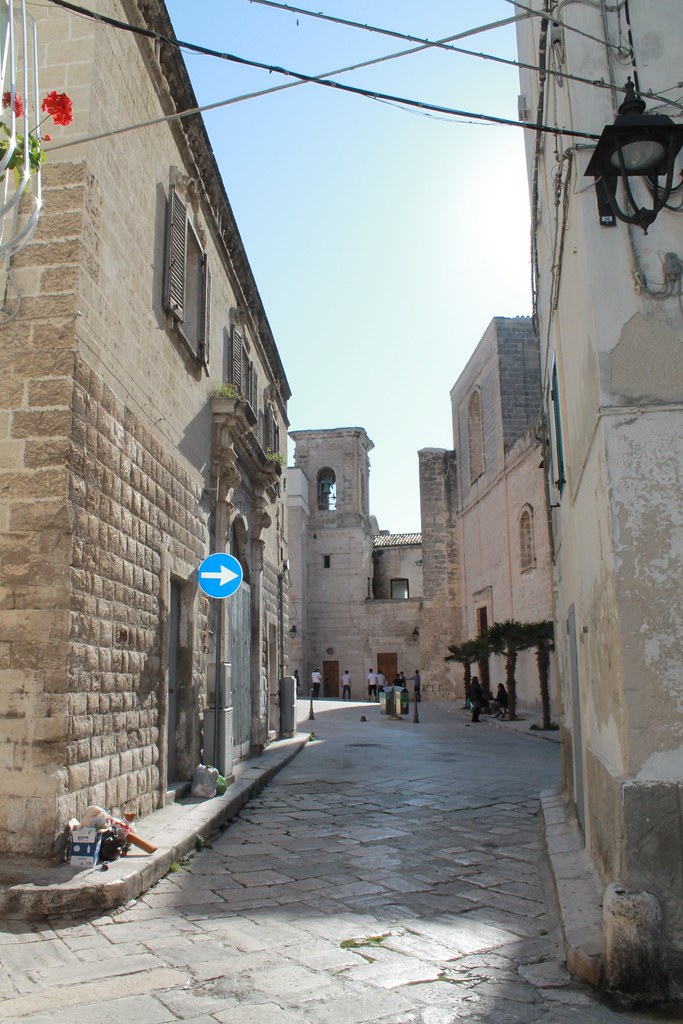
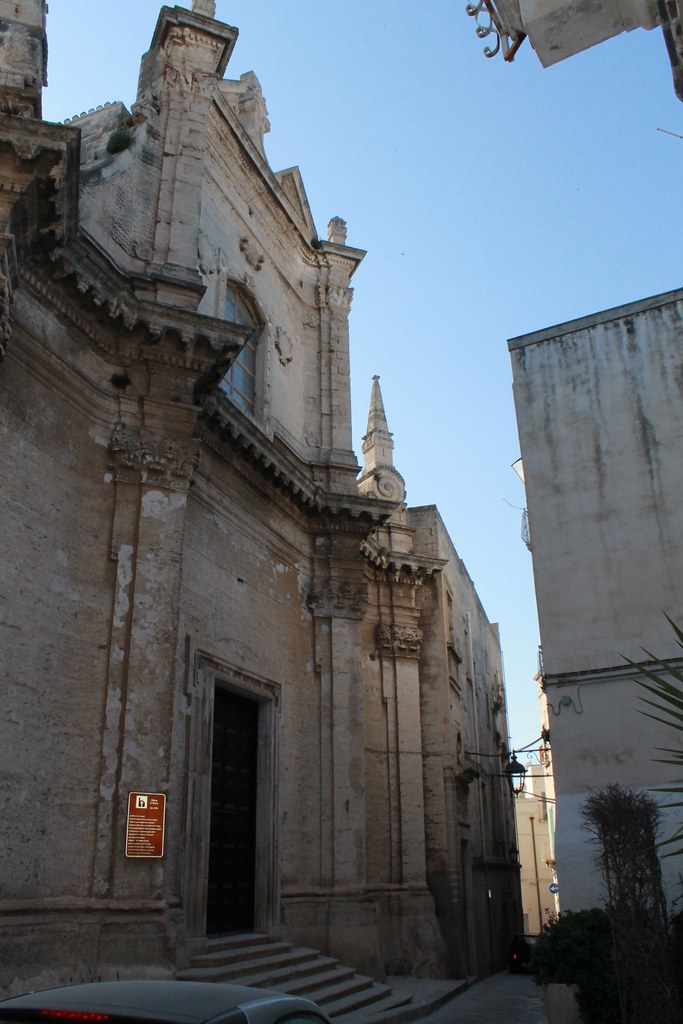
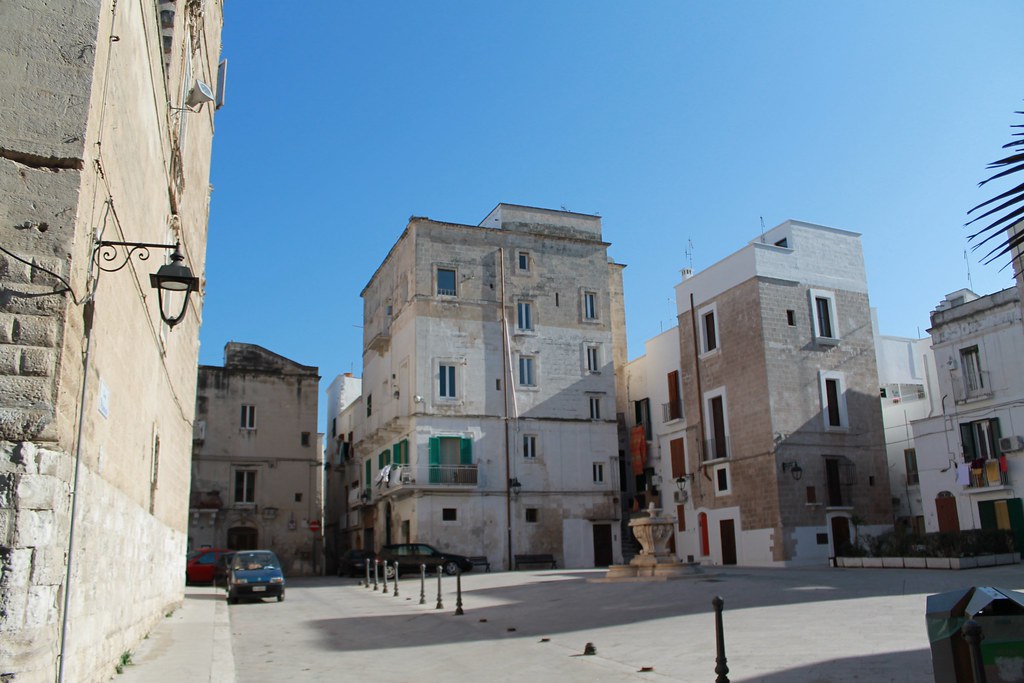
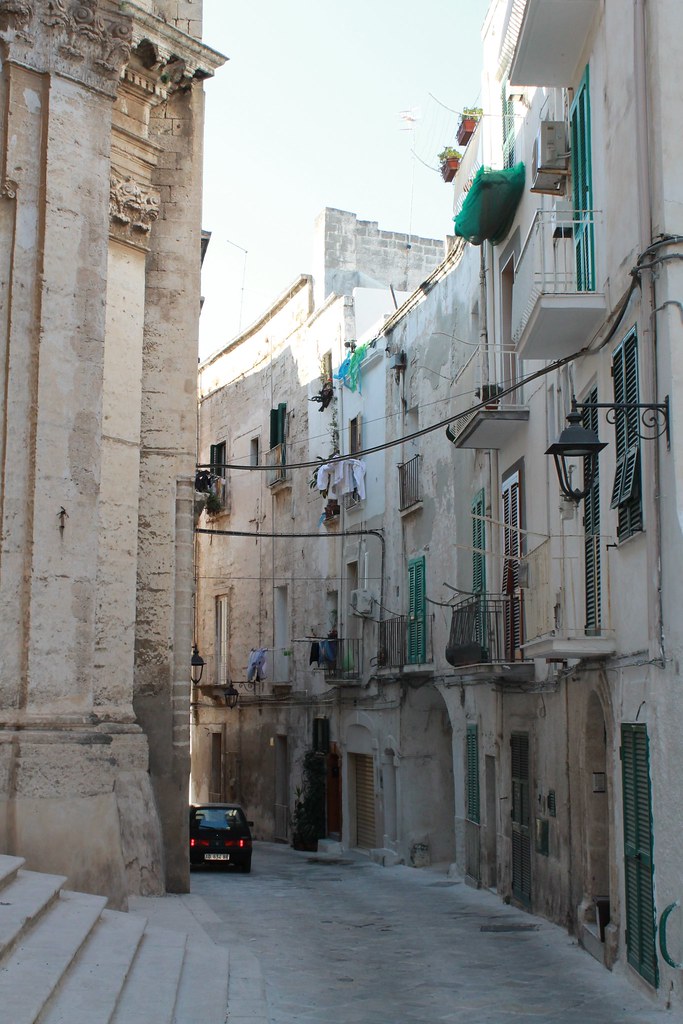
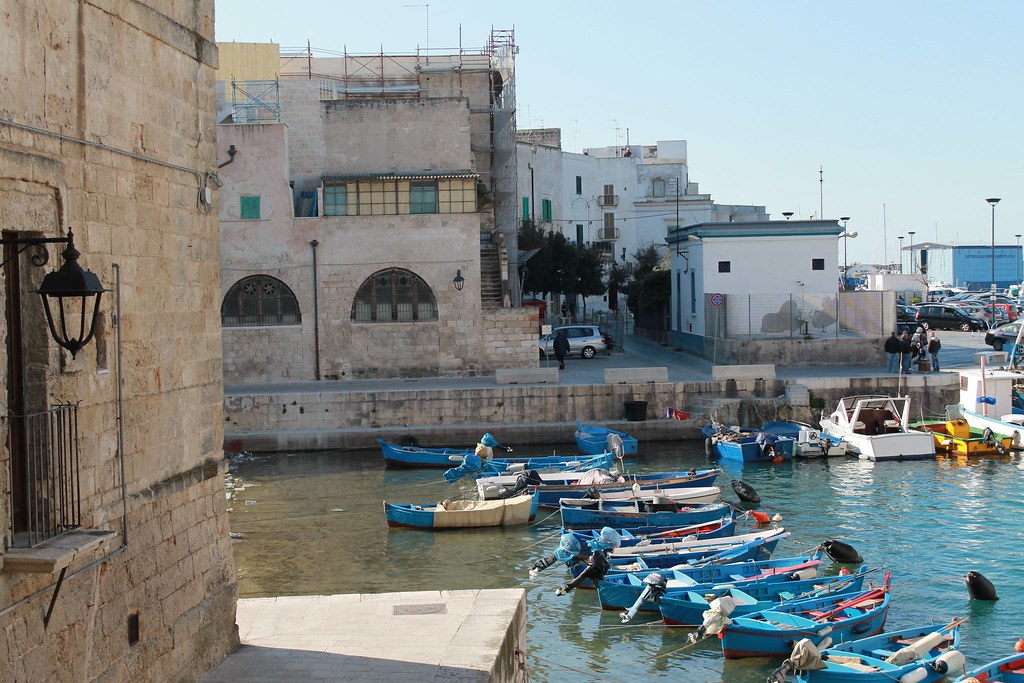
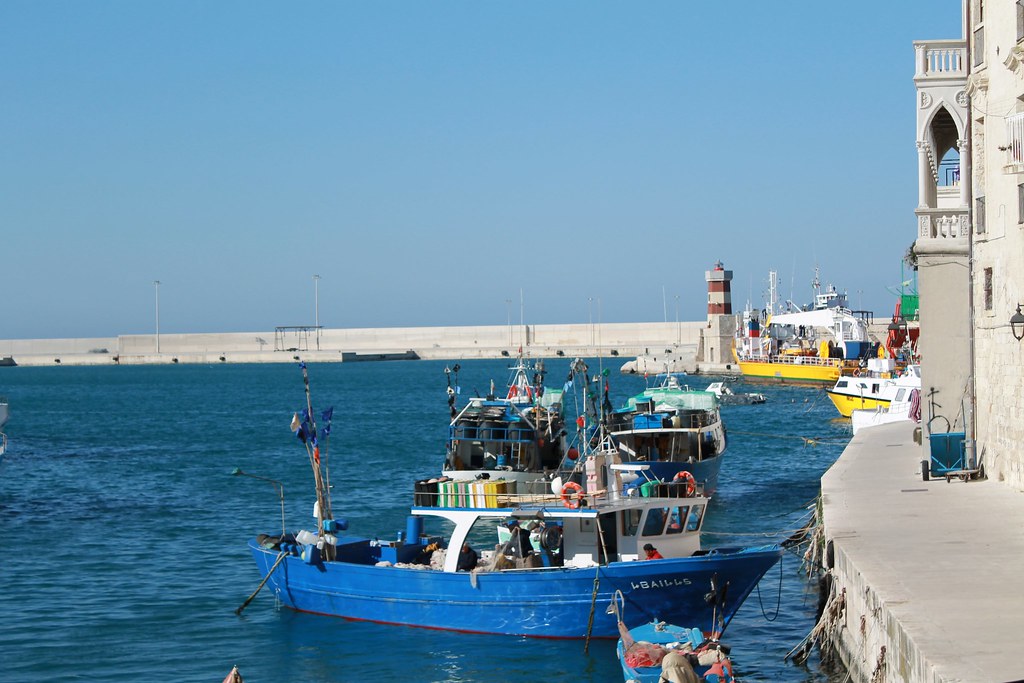
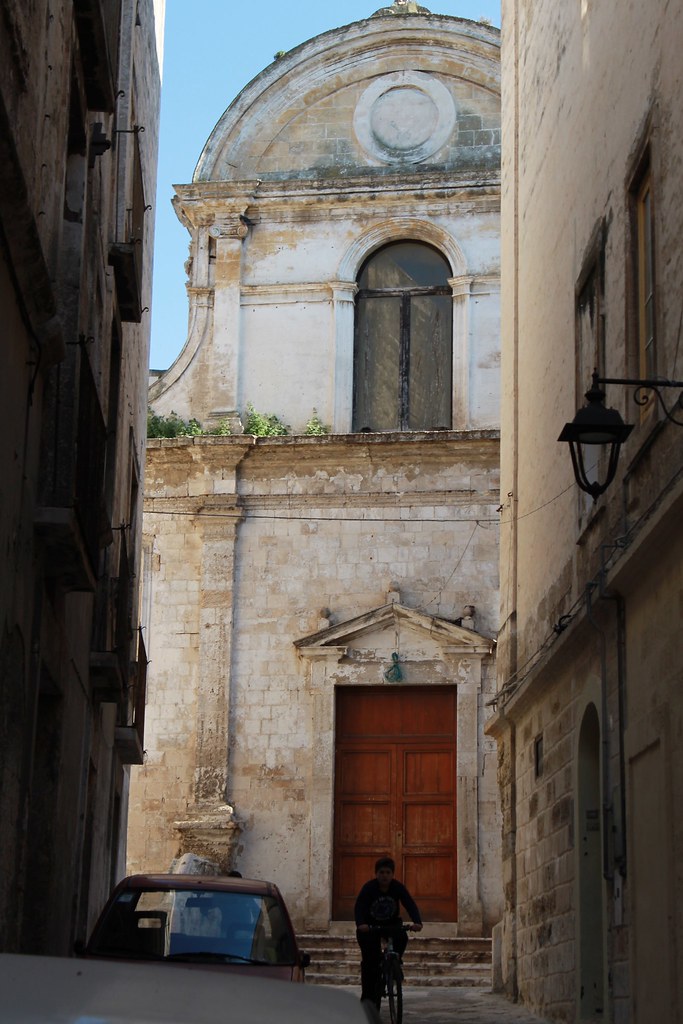
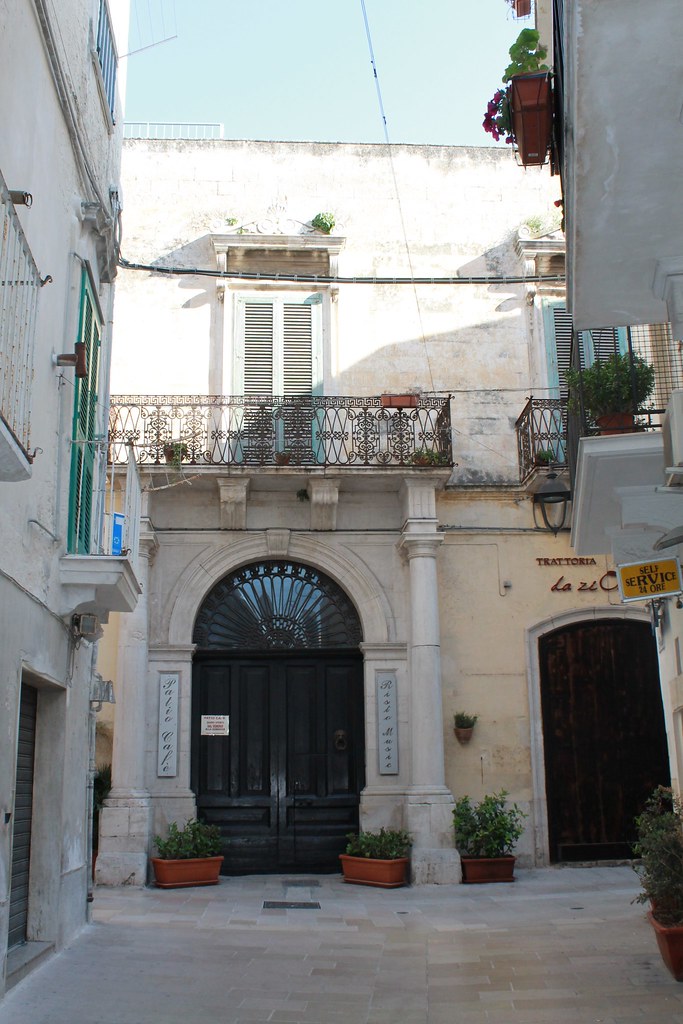
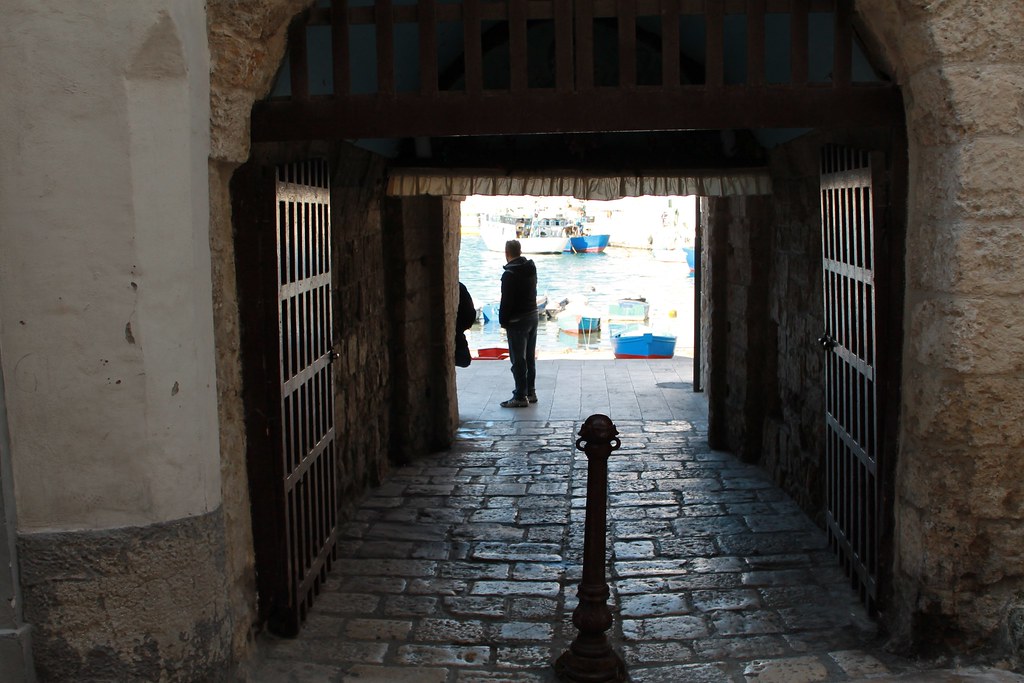
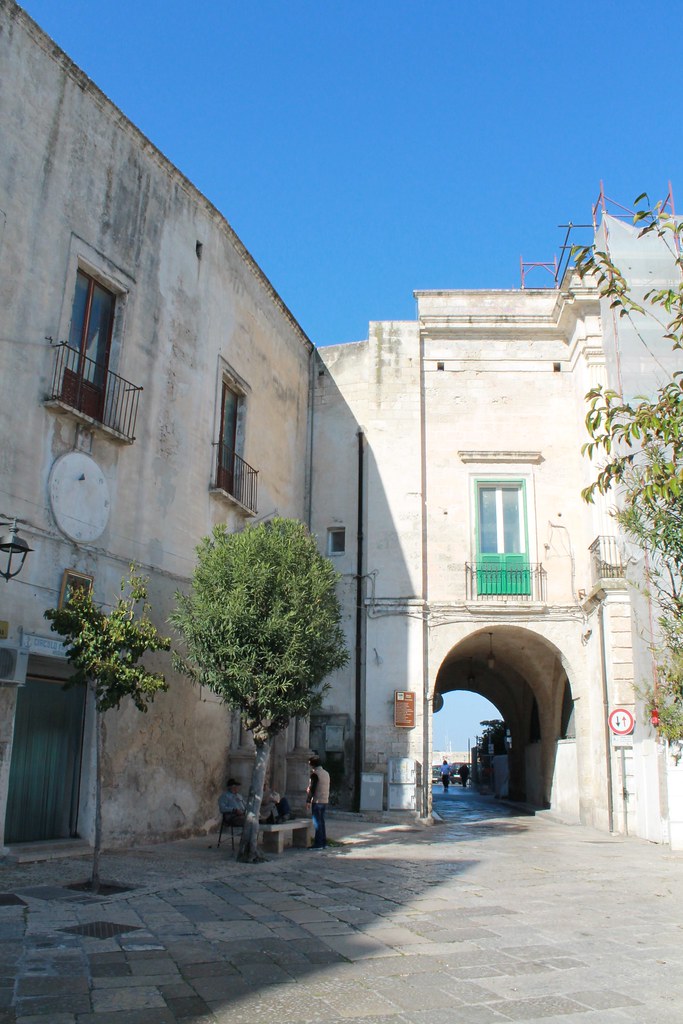
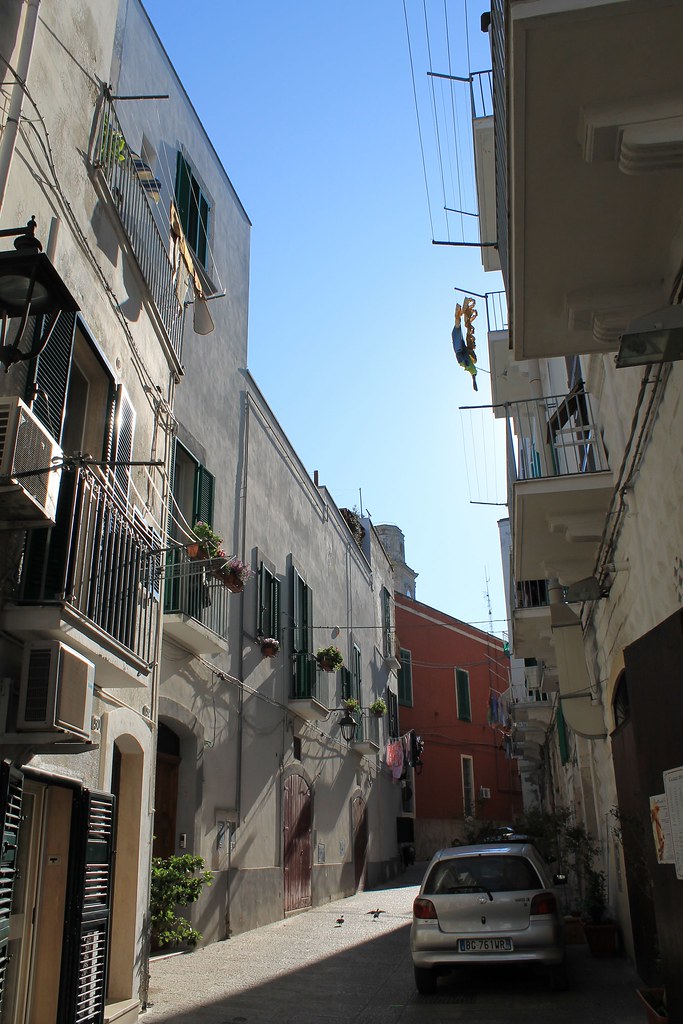
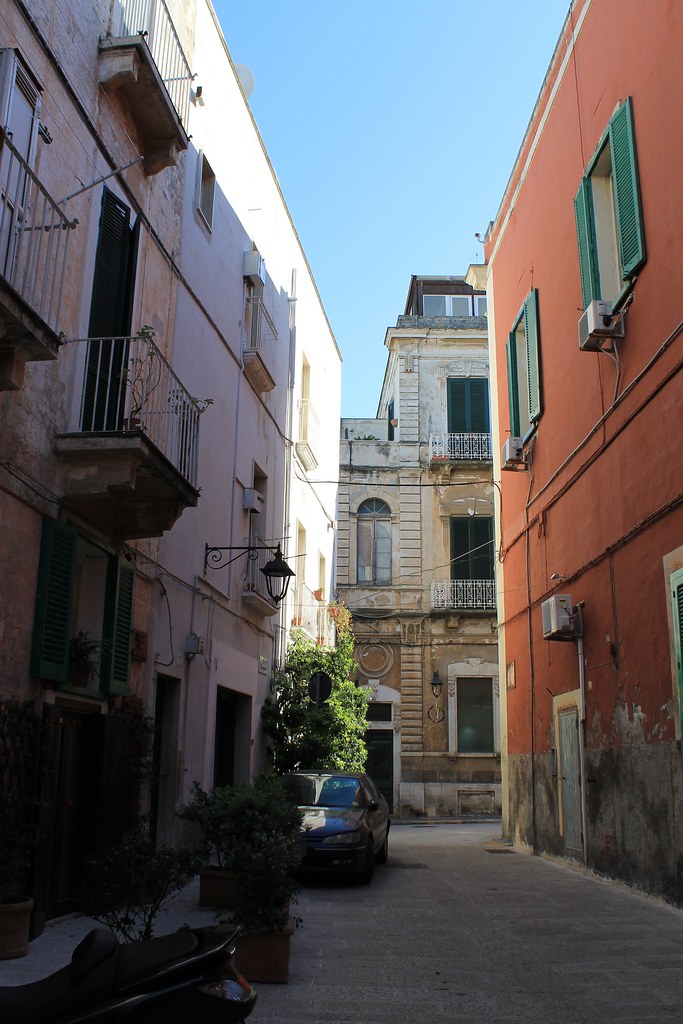
The area was first settled as a Greek establishment as the city of Gnatia, Monopoli being a smaller outer village known as Dyria, of Peucetian origins.
After the destruction of Gnatia by the Ostrogoth king Totila in 545, its inhabitants fled to Monopoli, from which it derives its name as "only city". In the following centuries the area would be controlled by the Byzantines, Normans and Hohenstaufen, and was a starting point for naval Crusades expeditions, living in that period the peak of its splendour. Later it was a fief under Angevine and Aragonese feudal lords.
In 1484 the city came under Venetian control and saw an economic upswing as a seaport on the Adriatic Sea as a base between Bari and Brindisi, as well as through trading its own agricultural goods. It was frequently attacked by Muslim pirates in the following decades. Under Spanish rule Monopoli became a free city in 1545. It became part of the newly-unified Kingdom of Italy in 1860.
The city, lying in the south of Italy Mezzogiorno, enjoyed a certain economic development during the 60's, thanks to the opening of a Tognana (an important Italian ceramic manufacturer) industrial plant. The closure of this plant in the end of the 90's certainly worsened the city's economy; Monopoli's economic recovery in the latest year has mostly been due to new industries (the most important is the MerMec, which produces railway material) and the development of tourism, especially in the coast and the countryside.

































 The area was first settled as a Greek establishment as the city of Gnatia, Monopoli being a smaller outer village known as Dyria, of Peucetian origins.
After the destruction of Gnatia by the Ostrogoth king Totila in 545, its inhabitants fled to Monopoli, from which it derives its name as "only city". In the following centuries the area would be controlled by the Byzantines, Normans and Hohenstaufen, and was a starting point for naval Crusades expeditions, living in that period the peak of its splendour. Later it was a fief under Angevine and Aragonese feudal lords.
In 1484 the city came under Venetian control and saw an economic upswing as a seaport on the Adriatic Sea as a base between Bari and Brindisi, as well as through trading its own agricultural goods. It was frequently attacked by Muslim pirates in the following decades. Under Spanish rule Monopoli became a free city in 1545. It became part of the newly-unified Kingdom of Italy in 1860.
The city, lying in the south of Italy Mezzogiorno, enjoyed a certain economic development during the 60's, thanks to the opening of a Tognana (an important Italian ceramic manufacturer) industrial plant. The closure of this plant in the end of the 90's certainly worsened the city's economy; Monopoli's economic recovery in the latest year has mostly been due to new industries (the most important is the MerMec, which produces railway material) and the development of tourism, especially in the coast and the countryside.
The area was first settled as a Greek establishment as the city of Gnatia, Monopoli being a smaller outer village known as Dyria, of Peucetian origins.
After the destruction of Gnatia by the Ostrogoth king Totila in 545, its inhabitants fled to Monopoli, from which it derives its name as "only city". In the following centuries the area would be controlled by the Byzantines, Normans and Hohenstaufen, and was a starting point for naval Crusades expeditions, living in that period the peak of its splendour. Later it was a fief under Angevine and Aragonese feudal lords.
In 1484 the city came under Venetian control and saw an economic upswing as a seaport on the Adriatic Sea as a base between Bari and Brindisi, as well as through trading its own agricultural goods. It was frequently attacked by Muslim pirates in the following decades. Under Spanish rule Monopoli became a free city in 1545. It became part of the newly-unified Kingdom of Italy in 1860.
The city, lying in the south of Italy Mezzogiorno, enjoyed a certain economic development during the 60's, thanks to the opening of a Tognana (an important Italian ceramic manufacturer) industrial plant. The closure of this plant in the end of the 90's certainly worsened the city's economy; Monopoli's economic recovery in the latest year has mostly been due to new industries (the most important is the MerMec, which produces railway material) and the development of tourism, especially in the coast and the countryside.
Comments
Post a Comment